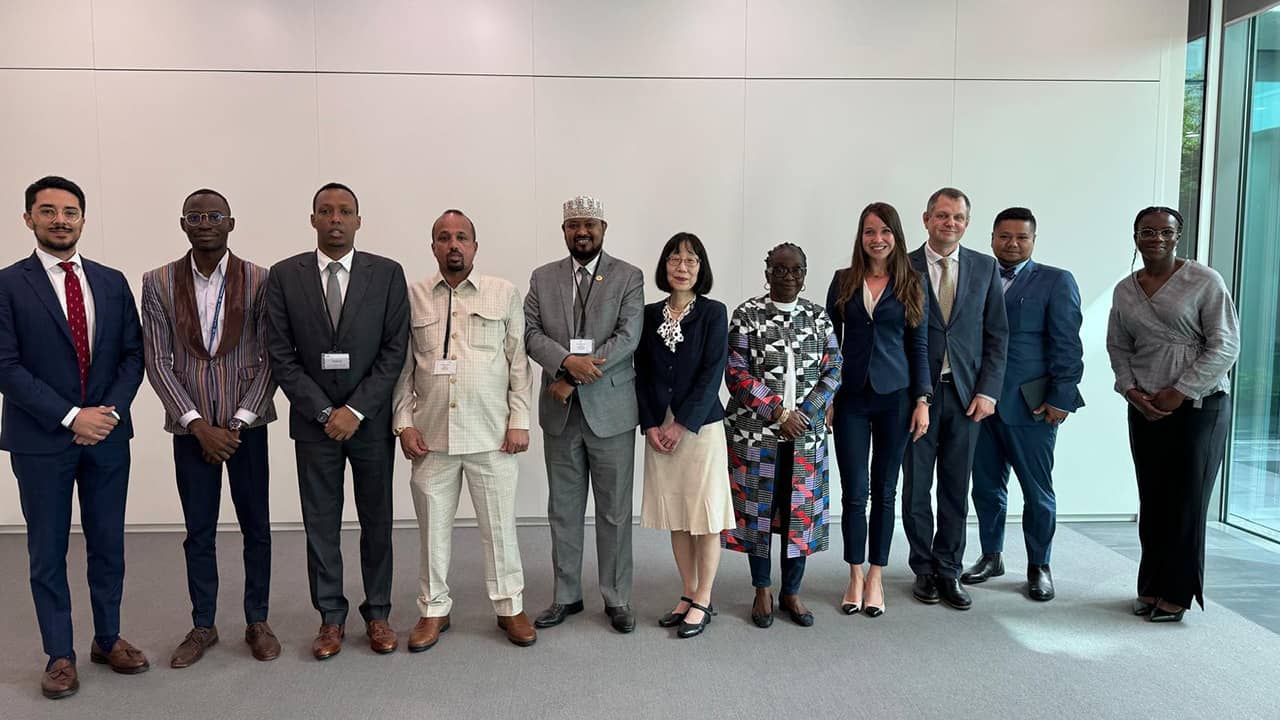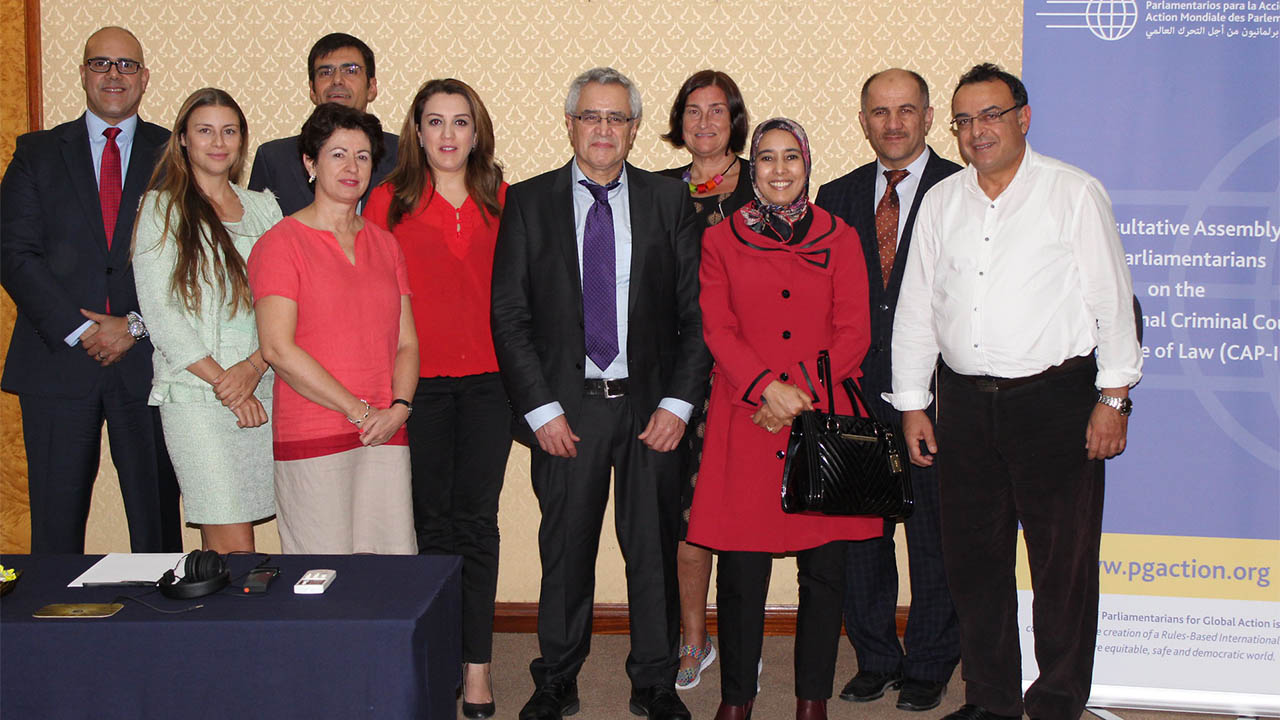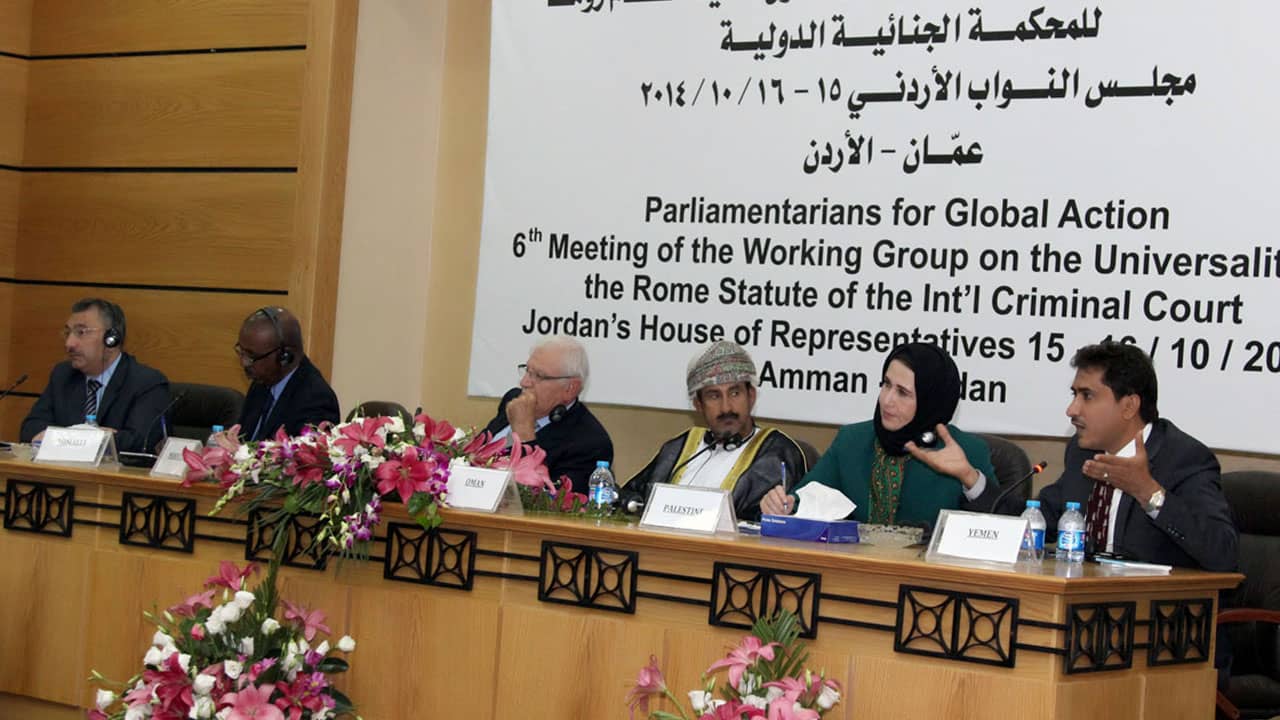For more than 30 years, Somalia has endured recurring cycles of armed violence, insecurity, and instability, creating a conducive environment for the perpetration of atrocities and attacks on civilians. In this context, there is a huge need for accountability in the country and for upholding international law. Hence, PGA has been committed to collaborating actively with its members in Somalia to foster the accession process to the Rome Statute and promote the rule of law. Leveraging the political determination of its parliamentary members, PGA offers comprehensive technical support to facilitate this crucial objective.
PGA’s close work with Somalia started in 2014 with the participation of two MPs in the 6th Meeting of PGA’s Working Group on the Universality of the Rome Statute of the International Criminal Court in the Middle East and North Africa. During this meeting, PGA Member Mr. Abdirahman Hosh Jibril, Former Minister of Constitutional Affairs and Reconciliation of the Transitional Federal Government of Somalia, confirmed his strong commitment to launch the ratification process in Somalia by raising awareness and creating political will within the public opinion, the Parliament and the government, highlighting the imperative for Somalia to join the Rome Statute system in the context of the continued attacks by Al-Shabab against the population. Additionally, PGA Member Mr. Abdi Ali Hassan, Chair of the National Electoral Commission at the time, highlighted the priority of creating a close alliance with Somali and international civil society organizations to achieve the goal of accession to the Rome Statute.
The visit to the ICC in 2022 of the Speaker of the Federal Parliament of Somalia, H.E. Adan Mohamed Nuur Madobe, presented new opportunities and, notably, a revived commitment toward accession to the Rome Statute. Subsequently, the ICC requested PGA’s technical assistance in this process and engaged directly with the then Special Advisor to the Speaker of Parliament on inter-parliamentary relations, Mr. Mahad Haji, to promote the accession to the Rome Statute. In March 2023, the Secretariat sent Mr. Haji PGA’s draft accession model instrument and an explanatory memorandum on the accession and all amendments to the Statute.
In addition, in April 2023, PGA facilitated a meeting between Mr. Haji and the Deputy Prosecutor of the ICC, Ms. Nazhat Shameem Khan, to discuss, on the one hand, the prospect of advancing the accession and tackle misconceptions about the Rome Statute and, on the other, engage with the co-facilitators on Universality of the International Criminal Court – The Netherlands and the Republic of Korea – to seek assistance in this regard. After the discussions, The Netherlands facilitated the translation of the Rome Statute into Somali, which was later shared with relevant stakeholders, including parliamentarians and government officials in the country.
During the 22nd Session of the Assembly of States Parties held from 4 to 14 December 2023, PGA invited Hon. Marwa Abdibashir Hagi, MP (Somalia), to a panel discussion on “Why Universality Matters: The Importance of ratifying the Rome Statute, its Amendments, and the Agreement on Privileges and Immunities.” The event underscored the crucial need for universal ratification and implementation of the Rome Statute as a pivotal step in holding perpetrators of atrocities accountable. After the event, PGA facilitated a bilateral meeting between Ms. Hagi and the then-ICC President H.E. Piotr Hofmański, during which Ms. Hagi reaffirmed that, despite the current political situation, the Federal Parliament was committed to advancing the accession process in the country.
In January 2024, several PGA members in Somalia presented an accession draft bill to the Speaker for its inclusion in the agenda of the upcoming parliamentary session. The Bill was nevertheless rejected on procedural grounds. Following this setback, the PGA secretariat drafted an explanatory letter to underline the importance of the Rome Statute system, which was then shared with all 275 Members of Parliament, including the Speaker and the Deputy Speakers. To continue raising awareness and assisting in the advancement of the accession process, PGA organized a high-level parliamentary delegation of the Federal Republic of Somalia to the ICC and other international institutions in The Hague.
| Signature, Ratification of/Accession to the Rome Statute of the ICC | |
|---|---|
| Signature Date: | Not yet signed |
| Ratification Date: | Not yet ratified |
| Amendments to the Rome Statute | |
|---|---|
| Ratification of the Kampala Amendment to Article 8 of the Rome Statute on war crimes [poison and expanding bullets in NIAC] (2010): | No |
| Ratification of the Kampala Amendment to the Rome Statute on the crime of aggression reflected in Article 8 bis (2010): | No |
| Ratification of the Amendment to Article 124 of the Rome Statute (2015): | No |
| Ratification of the Amendment to Article 8 of the Rome Statute on war crimes [biological weapons] (2017): | No |
| Ratification of the Amendment to Article 8 of the Rome Statute on war crimes [blinding laser weapons] (2017): | No |
| Ratification of the Amendment to Article 8 of the Rome Statute on war crimes [non-detectable fragments] (2017): | No |
| Ratification of the Amendments to Article 8 of the Rome Statute on war crimes [starvation as a war crime in NIAC] (2019): | No |
| Adoption of implementation legislation of the Rome Statute of the ICC | |
|---|---|
|
Somalia has not criminalized any core crimes under the Rome Statute. There are no references to the general principles of criminal law or provisions on cooperation with the ICC. |
|
| Cooperation Agreements | |
|---|---|
| Ratification of Agreement on Privileges and Immunities of the Court (APIC): | No. |
| Signature of Agreement of Enforcement Sentences with the ICC: | No. |
| Signature of Agreement of Interim and Final Release with the ICC: | No. |
| Signature of Bilateral Immunity Agreement with the USA: | No. |










